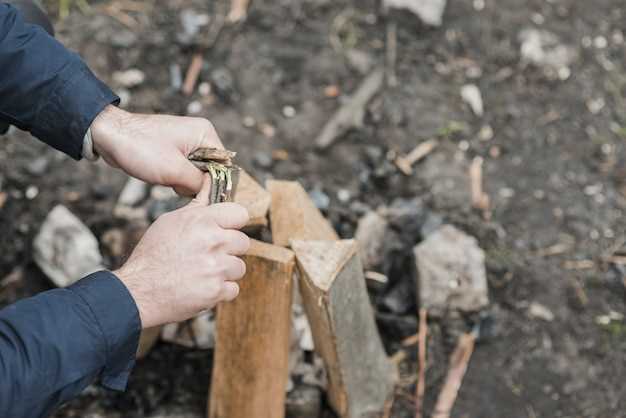
In areas with high humidity, the risk of rust formation on firearms significantly increases. Rust not only affects the aesthetic appearance of your weapons but can also compromise their functionality and safety. The key to maintaining your firearms in such environments lies in prevention and diligent care.
Understanding the specific factors that contribute to rust development is crucial. Humid conditions create an ideal environment for moisture to linger, which accelerates the oxidation process of metal surfaces. Consequently, regular maintenance becomes imperative to preserve your firearms in optimal condition. This article will provide practical tips and techniques to help you effectively combat rust and ensure the longevity of your prized possessions.
Implementing a consistent care routine, utilizing protective products, and making informed storage choices are all essential strategies for rust prevention. By following the guidelines outlined below, firearm enthusiasts can protect their weapons from corrosion and maintain their performance for years to come.
Choosing the Right Protective Coating for Your Firearm
When it comes to preventing rust on firearms, selecting an appropriate protective coating is essential for long-term care and maintenance. Various coatings offer differing levels of protection against humidity and environmental factors. Understanding these options can help you make an informed decision for your gun.
One of the most common coatings is bluing, which involves a chemical process that provides a layer of rust-resistant protection. While bluing offers good initial defense, it may require additional care and maintenance, especially in humid climates. To enhance its effectiveness, regular oiling is recommended to form a barrier against moisture.
Another popular choice is nitride treatment, also known as Melonite or Tenifer. This process hardens the surface of the metal and offers excellent corrosion resistance. It is particularly suitable for firearms that are frequently exposed to wet conditions. Nitride-coated guns can be easier to maintain and tend to require less frequent application of protective oils.
For maximum rust prevention, consider a polymer coating. This type of coating provides a protective layer that resists moisture and can be applied in various colors and finishes. Polymeric coatings not only help prevent rust but also offer added impact resistance, making them ideal for both outdoor and target shooting scenarios.
Ultimately, the choice of coating should align with your usage patterns and environmental conditions. Each protective layer has its merits, and understanding their differences will enhance your firearm’s longevity. Proper care, including regular inspection and maintenance, is crucial in ensuring that your firearm remains rust-free and in optimal working condition.
Best Practices for Storage of Firearms in Humidity

When storing firearms in humid environments, proper care is essential to prevent rust and maintain the integrity of your weapons. The first step is to ensure that your storage area is dry. Utilize dehumidifiers or silica gel packs to absorb excess moisture in the air, creating a more stable environment.
Additionally, consider using firearm-specific storage cases that provide moisture-resistant properties. These cases are designed to protect against environmental factors while allowing for proper ventilation. It’s also crucial to store firearms in a location that does not experience extreme temperature fluctuations, as rapid changes can lead to condensation build-up.
Regular maintenance plays a significant role in rust prevention. Before storing your firearms, clean them thoroughly using oils or coatings designed to protect against moisture. This layer of protection can significantly reduce the risk of rust forming on metal surfaces.
Ensure that firearms are stored in an upright position, which helps to prevent moisture from settling in critical areas. Utilizing gun racks or stands can promote airflow around the firearms, further assisting in moisture management. Lastly, regularly inspecting your firearms and storage environment helps catch any potential rust issues early, allowing for timely intervention.
Regular Maintenance Routines to Combat Rust Formation

To effectively prevent rust on firearms, especially in humid climates, implementing a consistent maintenance routine is essential. Regular care not only enhances the longevity of your gun but also ensures its reliability during use.
Begin by cleaning your firearm after every use. Residue from ammunition, moisture, and dirt can accelerate rust formation. Use a quality solvent and brush to remove any buildup. Pay special attention to hard-to-reach areas where moisture might collect.
After cleaning, thoroughly dry all metal surfaces. This step is crucial, as any remaining moisture can lead to rust. Utilize a soft cloth to wipe down the entire firearm, ensuring that no spots are missed.
Next, apply a light coat of gun oil to protect the metal surfaces. This oil acts as a barrier against moisture and helps prevent oxidation. Be sure to use a firearm-specific oil that is designed for this purpose. Avoid over-oiling, as it can attract dust and debris.
In addition to applying oil, perform routine inspections of your firearm. Examine the metal components for any signs of existing rust. If detected, remediate promptly by using a rust remover and reapplying oil to affected areas.
Store your gun in a controlled environment. Use a dehumidifier in your storage space to reduce humidity levels. Additionally, consider using silica gel packets within the gun case to absorb excess moisture.
Lastly, consider adopting a monthly or quarterly maintenance schedule, even if the firearm has not been used. Regular check-ups will help catch any potential rust issues before they escalate, ensuring your gun remains in peak condition.



